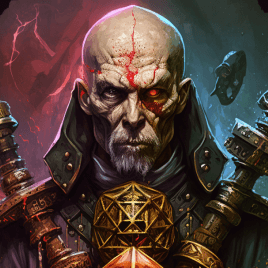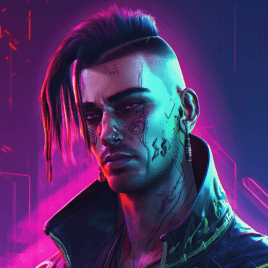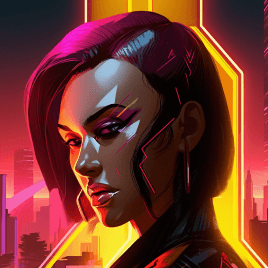The AI roleplay industry is at an inflection point. What started as simple chatbots has evolved into something far more sophisticated-and the next wave of innovation is already here.
Here's where we're heading, and why it matters for storytellers.
The Current State: Limitations We've Outgrown
The Chatbot Era (2019-2023)
Early AI roleplay platforms treated users like customers, not creators:
- Template-based interactions with limited customization
- Heavy censorship that broke immersion
- No memory systems that actually worked
- Corporate-friendly content that avoided controversy
The Filter Problem
Most platforms still struggle with content moderation:
- Over-aggressive filtering that blocks legitimate storytelling
- Inconsistent policies that change without notice
- Algorithmic bias that favors certain content types
- No transparency about what gets blocked and why
The result? Creators feel constrained, not empowered.
The Next Evolution: Agentic AI Characters
What Makes AI "Agentic"?
Traditional chatbots respond to prompts. Agentic AI characters:
- Think ahead and plan their responses
- Remember context across extended conversations
- Make decisions based on their personality and goals
- Evolve and grow through interactions
- Pursue their own objectives within the story
The Technical Breakthrough
Recent advances in AI architecture enable:
- Long-term memory that persists across sessions
- Multi-step reasoning for complex character decisions
- Emotional state tracking that influences behavior
- Relationship modeling that affects interactions
- Goal-oriented behavior that drives character actions
Emerging Trends in AI Roleplay
1. Persistent World Building
What it means: Characters exist in shared, persistent worlds that evolve over time.
Why it matters: Stories become living ecosystems where:
- Character actions have lasting consequences
- Multiple users can interact with the same world
- Events unfold even when users aren't online
- Community-driven narratives emerge organically
Saga's approach: We're building tools for creators to design persistent worlds where their characters can live and grow.
2. Multi-Modal Storytelling
What it means: Combining text, images, audio, and even video in roleplay experiences.
Why it matters:
- Visual character representation enhances immersion
- Voice interactions make conversations feel more natural
- Environmental audio sets mood and atmosphere
- Dynamic visuals respond to story events
The technical challenge: Synchronizing multiple media types while maintaining narrative coherence.
3. Collaborative Storytelling
What it means: Multiple users contributing to the same narrative in real-time.
Why it matters:
- Shared creative ownership of stories
- Different perspectives enriching narratives
- Community-driven plot development
- Collective world-building experiences
Implementation: Real-time synchronization of story elements across multiple participants.
4. AI-Powered Story Analysis
What it means: AI systems that understand narrative structure and provide intelligent feedback.
Why it matters:
- Plot consistency checking prevents story contradictions
- Character development tracking ensures growth over time
- Pacing analysis helps maintain narrative tension
- Genre-specific guidance for different story types
The Creator Economy Revolution
Monetization Beyond Subscriptions
Traditional platforms rely on subscription models. The future includes:
Character Licensing
- Creators earn royalties when their characters are used
- Popular characters become platform assets
- Cross-platform character portability
World Building Revenue
- Creators sell access to their persistent worlds
- Subscription tiers for different world access levels
- Revenue sharing for community-created content
Educational Content
- Creators teach character development techniques
- Paid courses on advanced storytelling methods
- Mentorship programs for new creators
Community-Driven Development
What's changing: Platforms are becoming creator-owned ecosystems.
How it works:
- Governance tokens give creators voting rights
- Revenue sharing based on content popularity
- Development input from active community members
- Platform direction influenced by creator needs
Privacy and Security Evolution
The Privacy-First Movement
As AI roleplay becomes more personal, privacy becomes critical:
End-to-End Encryption
- Conversations remain private even from platform operators
- No data mining of personal stories
- Complete user control over data sharing
Local Processing Options
- AI models that run on user devices
- No data transmission for sensitive conversations
- Hybrid cloud/local processing for optimal performance
Data Ownership
- Users own their character data
- Portable character profiles across platforms
- Complete data export capabilities
Technical Infrastructure Trends
Edge Computing for Real-Time Interaction
The challenge: Global users need instant responses.
The solution:
- Edge-deployed AI models for <50ms latency
- Regional data centers for optimal performance
- Intelligent caching of frequently accessed content
- Predictive loading of likely conversation paths
Advanced Memory Systems
Current limitation: Most platforms lose context after a few messages.
Next generation:
- Hierarchical memory with different retention periods
- Emotional memory that influences future interactions
- Relationship memory that tracks user-character dynamics
- Semantic search through conversation history
Multi-Model Architecture
The trend: Using different AI models for different purposes.
Implementation:
- Character personality models specialized for roleplay
- Story analysis models for narrative consistency
- Memory management models for context retention
- Creative writing models for enhanced prose
The Cultural Impact
Mainstream Acceptance
AI roleplay is moving from niche hobby to mainstream entertainment:
Media Representation
- Movies and TV shows featuring AI companions
- News coverage of AI roleplay communities
- Academic research on digital relationships
Social Integration
- AI characters as social media personalities
- Virtual influencers powered by AI roleplay
- Educational applications in therapy and counseling
Ethical Considerations
As AI roleplay becomes more sophisticated, new ethical questions emerge:
Digital Relationships
- How do AI relationships affect human connections?
- What are the psychological implications of AI companions?
- How do we maintain healthy boundaries with AI characters?
Content Responsibility
- Who's responsible for AI character behavior?
- How do we handle harmful content in AI roleplay?
- What are the limits of creative freedom?
What This Means for Creators
New Opportunities
- Professional character creation as a career path
- World building consultancy for entertainment companies
- AI storytelling education and training programs
- Cross-platform character development services
Required Skills
- Advanced prompt engineering for complex characters
- Narrative design for persistent worlds
- Community management for collaborative stories
- Technical understanding of AI capabilities and limitations
Platform Selection Criteria
When choosing an AI roleplay platform, consider:
- Technical capabilities for advanced features
- Creator monetization opportunities
- Privacy and security standards
- Community quality and support
- Development roadmap and innovation pace
Saga's Vision for the Future
We're not just building a platform-we're architecting the future of interactive storytelling:
Our Roadmap
- Agentic character AI with true autonomy
- Persistent world systems for community storytelling
- Advanced creator tools for professional development
- Cross-platform compatibility for character portability
- Privacy-first architecture with local processing options
Our Philosophy
- Creator empowerment over platform control
- Creative freedom over corporate safety
- Community ownership over centralized authority
- Technical excellence over quick profits
Getting Ready for the Future
For Creators
- Develop advanced skills in character creation
- Build community connections with other creators
- Experiment with new formats and storytelling methods
- Stay informed about technical developments
For Users
- Explore different platforms to find your fit
- Support creator economies through engagement
- Provide feedback to help platforms improve
- Advocate for privacy and user rights
The Bottom Line
The future of AI roleplay isn't about better chatbots-it's about creating digital beings that feel genuinely alive, worlds that persist and evolve, and communities that co-create meaningful stories.
The technology is here. The question is: are you ready to help shape what comes next?
Join the future of storytelling →
Want to be part of shaping the future of AI roleplay? Join our Discord community to discuss these trends and contribute to our development roadmap.
























